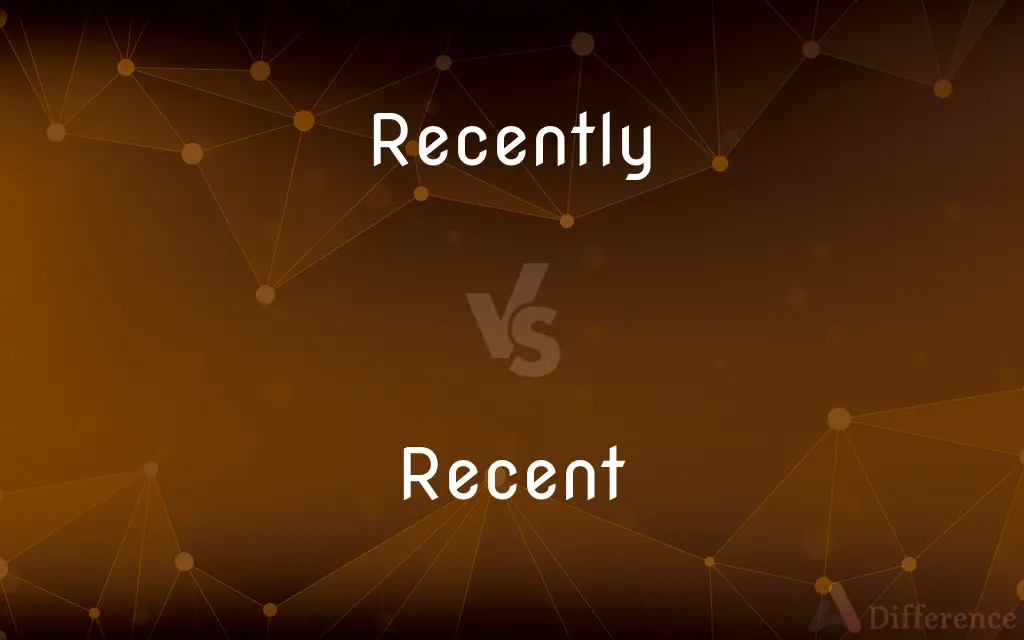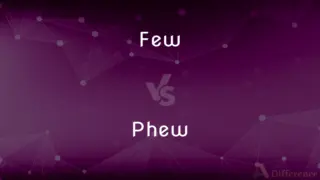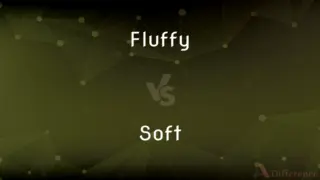Recently vs. Recent — What's the Difference?
By Tayyaba Rehman — Updated on October 29, 2023
Recently is an adverb describing when something happened, indicating a short time ago. Recent is an adjective describing something that occurred a short time ago.

Difference Between Recently and Recent
Table of Contents
ADVERTISEMENT
Key Differences
Recently refers to the time aspect of an action or event, indicating that it happened not long ago. It is used to modify verbs and describe the timing of actions.
Recent, on the other hand, is used to describe nouns. It specifies that something, such as an event or object, is new or occurred not long ago.
In usage, recently often appears at the beginning or end of a sentence. For example: "Recently, I started a new job."
In contrast, recent is used before a noun to qualify it. For example: "A recent study showed interesting results."
The choice between recently and recent depends on the grammatical context: recently modifies verbs, while recent modifies nouns.
ADVERTISEMENT
Comparison Chart
Part of Speech
Adverb
Adjective
Usage
Modifies verbs
Modifies nouns
Position in Sentence
Often at beginning or end
Before a noun
Example
"I recently visited Paris."
"A recent discovery changed our understanding."
Time Reference
Indicates when an action happened
Describes the time aspect of a noun
Compare with Definitions
Recently
Not long ago.
I recently finished reading that book.
Recent
Happening a short time ago.
She discussed the recent changes.
Recently
A short time in the past.
They recently moved to a new city.
Recent
Freshly occurring.
Recent events have been surprising.
Recently
Just a little while back.
He recently got promoted.
Recent
Contemporary.
Recent technology has advanced rapidly.
Recently
Lately.
I haven’t seen him recently.
Recent
New or not long ago.
A recent survey revealed interesting data.
Recently
In the near past.
Recently, the weather has been unpredictable.
Recent
Having happened, begun, or been done not long ago; belonging to a past period comparatively close to the present
A recent edition of the newspaper
His recent visit to Britain
Recently
Of, belonging to, or occurring at a time immediately before the present.
Recent
Another term for Holocene
Recently
Modern; new.
Recent
The Holocene epoch.
Recently
Recent(Geology) Of, relating to, or being the Holocene Epoch. See Table at geologic time.
Recent
Of, belonging to, or occurring at a time immediately before the present.
Recently
In the recent past
A recently published book
Recent
Modern; new.
Recently
Newly; lately; freshly; not long since; as, advices recently received.
Recent
Recent(Geology) Of, relating to, or being the Holocene Epoch. See Table at geologic time.
Recently
In the recent past;
He was in Paris recently
Lately the rules have been enforced
As late as yesterday she was fine
Feeling better of late
The spelling was first affected, but latterly the meaning also
Recent
Having happened a short while ago.
Recently
Very recently;
They are newly married
Newly raised objections
A newly arranged hairdo
Grass new washed by the rain
A freshly cleaned floor
We are fresh out of tomatoes
Recent
Up-to-date; not old-fashioned or dated.
Recent
Having done something a short while ago that distinguishes them as what they are called.
The cause has several hundred recent donors.
I met three recent graduates at the conference.
Recent
(sciences) Particularly in geology, palaeontology, and astronomy: having occurred a relatively short time ago, but still potentially thousands or even millions of years ago.
Recent
Of the Holocene, particularly pre-21st century.
Recent
An earlier term for the Holocene.
Recent
Of late origin, existence, or occurrence; lately come; not of remote date, antiquated style, or the like; not already known, familiar, worn out, trite, etc.; fresh; novel; new; modern; as, recent news.
The ancients were of opinion, that a considerable portion of that country [Egypt] was recent, and formed out of the mud discharged into the neighboring sea by the Nile.
Recent
Of or pertaining to the present or existing epoch; as, recent shells.
Recent
Being new in a time not long past;
Recent graduates
A recent addition to the house
Recent buds on the apple trees
Recent
Of the immediate past or just previous to the present time;
A late development
Their late quarrel
His recent trip to Africa
In recent months
A recent issue of the journal
Recent
Near to or not long before the present;
Recent times
Of recent origin
Recent
Pertaining to the near past.
This is her most recent artwork.
Common Curiosities
Is recent used to describe when an action took place?
No, recent is an adjective used to describe nouns.
Is it correct to say "a recently event"?
No, the correct form would be "a recent event."
Can recent be used at the end of a sentence?
No, recent should precede the noun it modifies.
Can recently start a sentence?
Yes, recently can be used at the beginning of a sentence.
Can recently be used to describe a noun?
No, recently is an adverb and modifies verbs, not nouns.
Is recently used to describe ongoing actions?
No, recently refers to actions that have already occurred.
Can recent modify verbs?
No, recent is an adjective and modifies nouns.
Is it grammatically correct to use recently with nouns?
No, recently should be used with verbs.
Does recently indicate a specific time?
No, recently indicates a general recent past without specifics.
Is recently always related to time?
Yes, recently always refers to a recent time period.
Can recently be used in questions?
Yes, recently can be used in questions about time.
Can recent describe something that happened years ago?
No, recent implies something occurred in the near past.
Is recent appropriate for describing long-term events?
No, recent is used for events in the near past.
Can recent refer to people?
Yes, it can describe someone recently involved in something (e.g., a recent graduate).
Can recent be used alone as a response?
No, recent needs to modify a noun and cannot stand alone.
Share Your Discovery

Previous Comparison
Few vs. Phew
Next Comparison
Fluffy vs. SoftAuthor Spotlight
Written by
Tayyaba RehmanTayyaba Rehman is a distinguished writer, currently serving as a primary contributor to askdifference.com. As a researcher in semantics and etymology, Tayyaba's passion for the complexity of languages and their distinctions has found a perfect home on the platform. Tayyaba delves into the intricacies of language, distinguishing between commonly confused words and phrases, thereby providing clarity for readers worldwide.














































